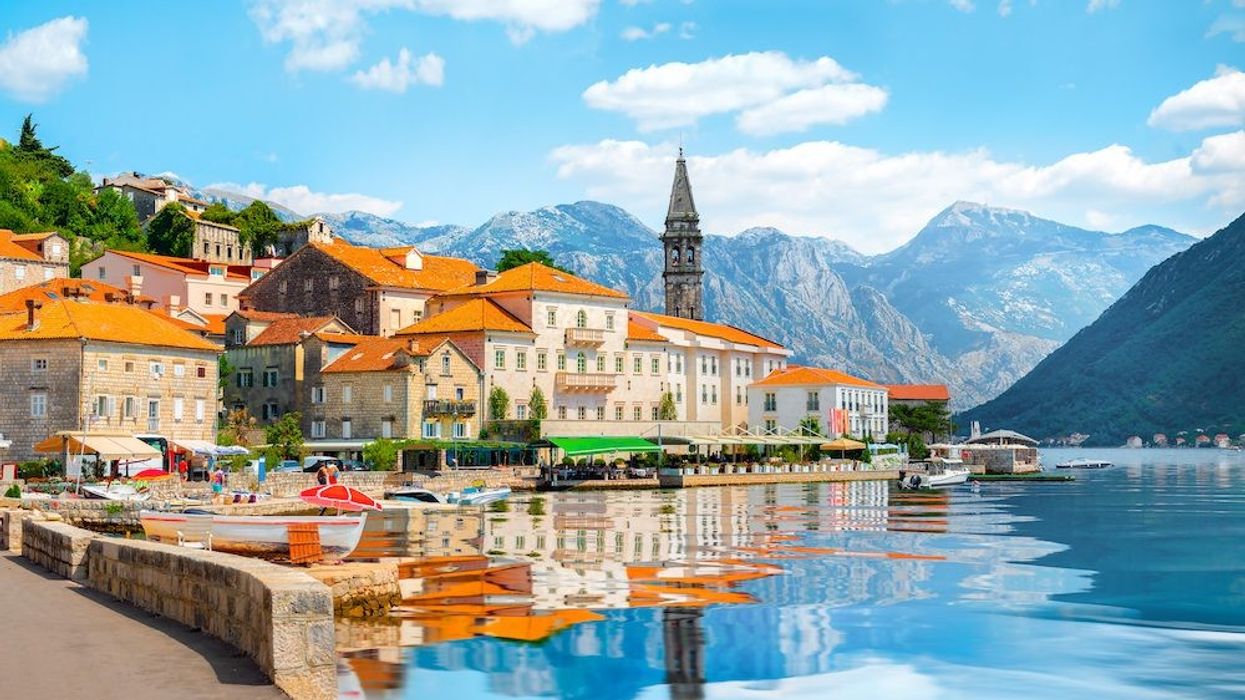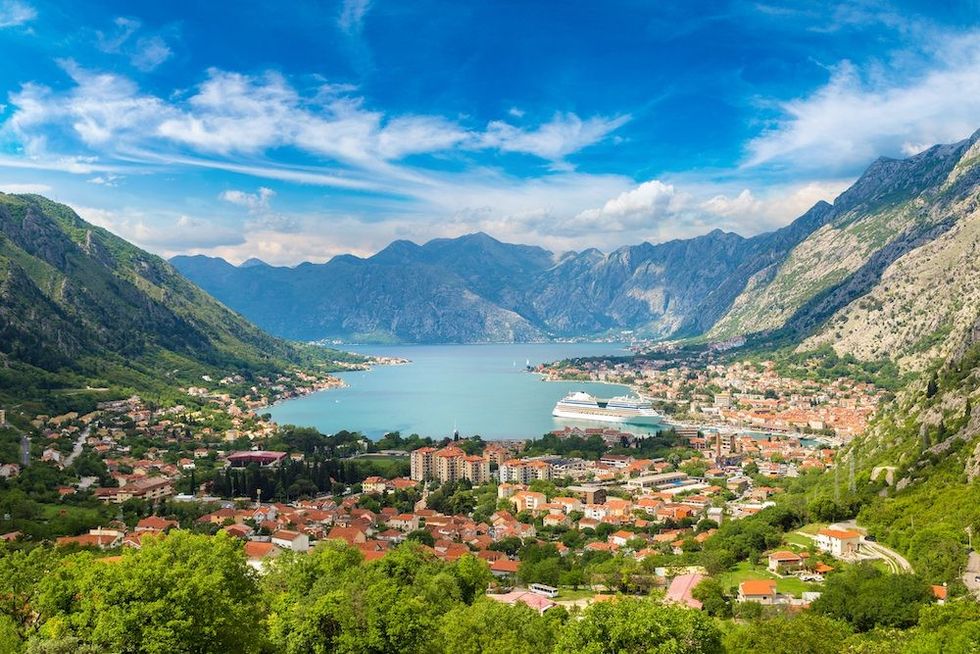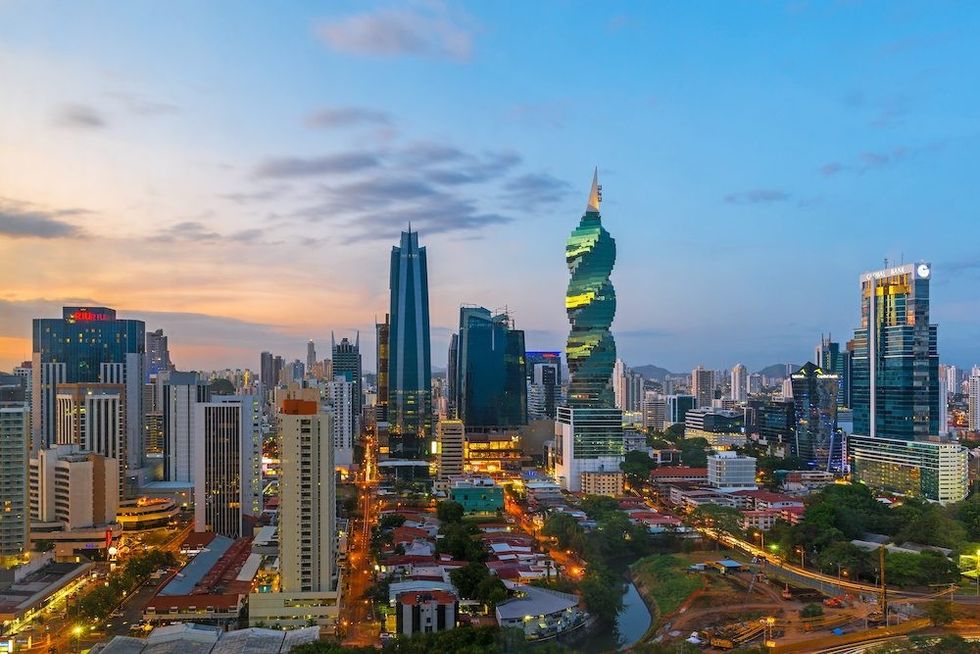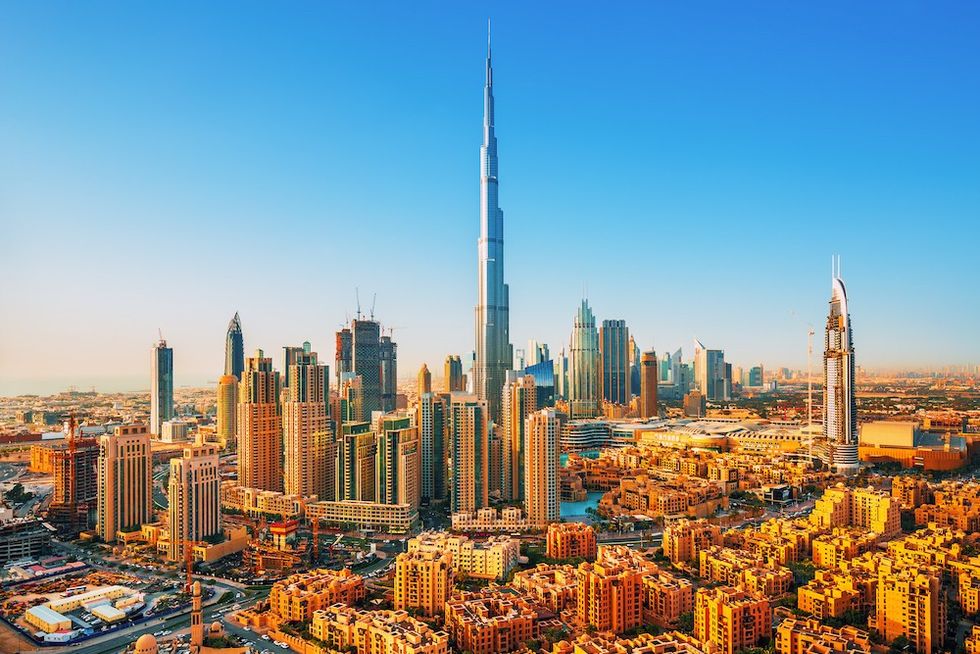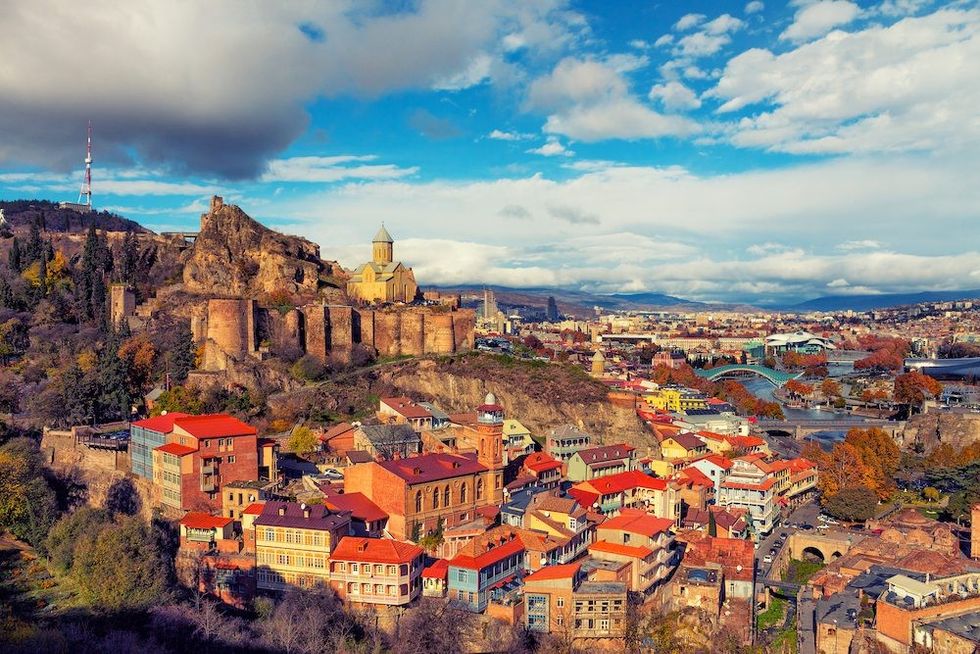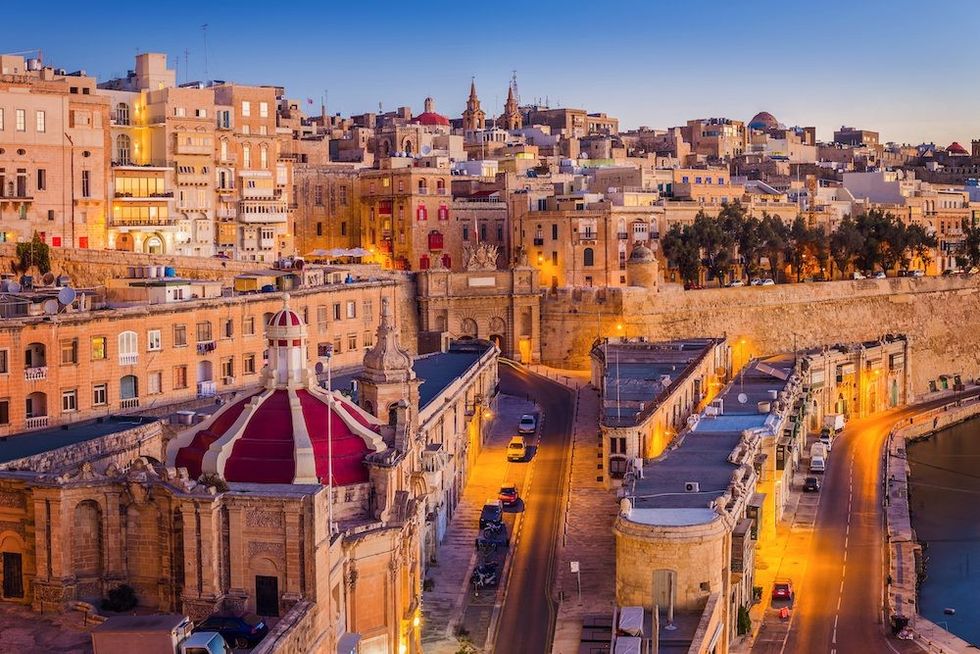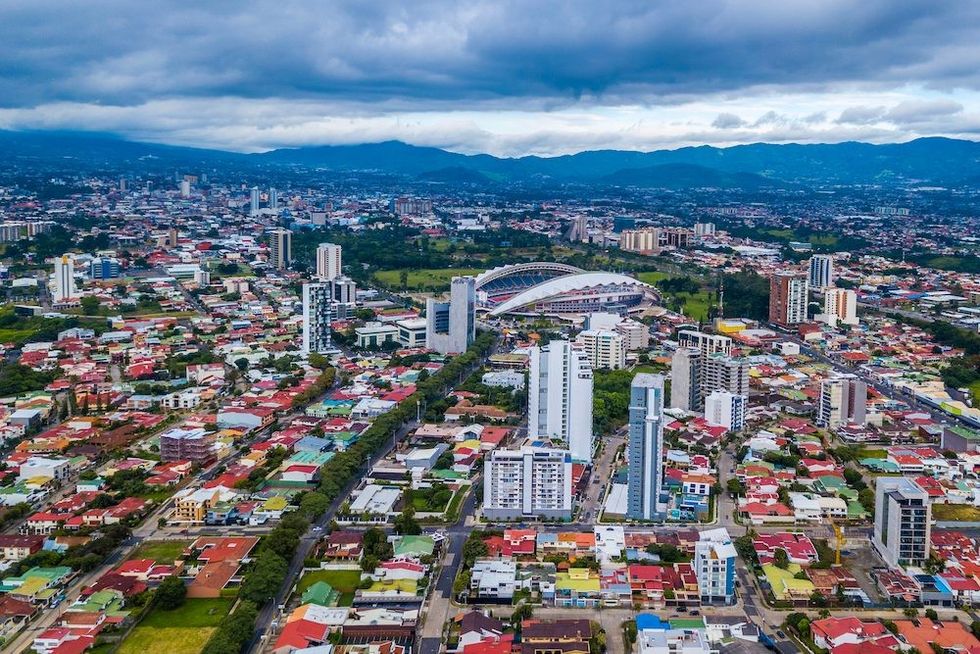Investing in Canadian residential real estate is a rough proposition these days. The average resale house price has fallen by about 18% nationwide over the past year, and even if you were to buy at these lower prices, the return on investment wouldn’t be that great.
In a 2018 report, CIBC estimated that 44% of new Toronto condo investors had negative cash flow -- they weren’t earning enough in rent to cover their costs. And that was before the massive run-up in house prices during the pandemic.
As long as house prices were rising rapidly, a negative-cash-flow investment could still make sense. But those days are over, at least for now. So what’s a real estate investor to do? Fortunately, Canada isn’t the only country in the world where you can buy an income-generating property. Now might be an excellent time to consider buying real estate abroad.
Yields, not price growth
When deciding what markets to invest in, the key metric to look at isn’t whether those markets are going to see rising house prices in the coming years.
With interest rates on the rise in much of the world, house price growth has slowed, and even turned negative, in many markets. But price growth isn’t what really matters when it comes to actual real estate investing. What matters is yield.
Simply put, a property yield is the percentage of your initial investment that you can make back in rental income in a year. If you invest $100,000 into a property that rents out for $10,000 a year, you have a 10% yield. The higher the yield, the better the investment. But, as real estate experts will tell you, yields tend to be higher in less stable, less predictable markets. That makes sense: Real estate is a long-term investment, so long-term stability matters. The less stable a market is, the faster investors will want to make their money back.
Today, yields are terrible in Canada, as they are in many developed countries. That’s not just because Canada is a very stable and predictable market; it’s also because a long era of low interest rates (which came to an end last year) has driven up house prices much faster than rental rates have gone up. According to recent data, property yields are averaging 3.7% in Canadian city centres, and 4.3% outside city centres. At these yields, it would take you 23 to 27 years to earn back the money from a cash purchase of a property.
There are many, many countries where you can do better than that. But it comes with a trade-off: Most of those countries have less stable economies than Canada’s. So they key is to find a level of risk that you’re comfortable with.
Below are six countries that have higher yields than Canada, and where Canadians are able to buy housing, and come with as little trade-off on stability and predictability as possible.
Montenegro
The pitch:
This strikingly beautiful country on the Adriatic Sea is one of Europe’s smallest, but that hasn’t stopped it from being a major draw for wealthy people looking for world-class real estate (not to mention first-class marinas to dock their superyachts).
Despite its popularity with the rich, the country has plenty of affordable real estate -- you can pick up a two-bedroom apartment in a touristy, seaside town for as little as 100,000 euro. Short-term rentals are allowed and common in tourist hot spots like Budva and Kotor, and property yields are about 50% higher than in Canada.
The details:
Although Montenegro isn’t in the European Union, it uses the euro as its default currency. Most of the additional costs for buying and selling property falls on the buyer. There is a 3% tax on property sales, and buyers can expect to pay a similar percentage in real estate agent fees. Annual property taxes range between 0.25% and 1% of the property value.
You can get a permanent residency permit with the purchase of any habitable apartment. For a standalone house, you will have to set up a company through which to buy it, something that real estate agencies will do for you for a fee of around 1,000 euro.
Montenegro’s banks generally don’t issue mortgages to foreigners, so here you will have to buy cash. Income taxes in Montenegro are among the lowest in Europe, ranging from 9% to 11%, and rental income is counted towards that.
Rental yields: 5.3% in city centres, 5.1% outside city centres
Crime index: 41.18; 84th highest crime rate out of 136; slightly less crime than Canada, slightly more crime than Germany.
Political stability index: -0.15; 105th most stable country out of 194; slightly less stable than the U.S. and Argentina, slightly more stable than Jordan and Nepal.
Panama
The pitch:
Panama has become very popular with foreign investors in the past few decades, and with good reason: Tropical weather, beautiful beaches, exotic jungles, and policies designed to attract foreign money.
You can pick up a two-bedroom apartment in the popular Panama City neighbourhood of Costa del Este for around US$250K, and property yields in Panama are more than double that in Canada.
The details:
Panama’s currency, the balboa, is tied one-to-one to the U.S. dollar. Most of the cost of buying a property falls on the seller, who can expect to spend 11% of the purchase price in total on the real estate agent’s commission, a 2% land transfer tax, and a capital gains tax of 3% of the selling price or 10% of the gain, whichever is lower.
Property taxes vary widely but are generally low. For a primary residence, the first US$120K of a property’s value is exempt from property taxes. For a secondary residence or investment property, only the first US$30K is exempt. Also, there is a property tax exemption period of 10 years for properties worth between US$120K and US$300K, and five years for properties above US$300K.
There is an annual rental income tax of 15% for rents collected between US$11K and US$50K; for amounts above US$50K, the tax rises to 25%.
You can get a residency permit with any purchase of real estate above US$300K, but for Canadians and citizens of other “friendly nations,” you need an investment of just US$200K to get a temporary residency permit.
Panamanian banks will issue mortgages to non-residents, but there is a lot of paperwork involved, and mortgage rates are a few percentage points higher than in Canada.
Rental yields: 9.1% in city centres, 8.1% outside city centres
Crime index: 45.15; 68th highest crime rate out of 136; slightly less crime than the U.K. and Ireland, slightly more crime than Italy and Belgium.
Political stability index: 0.29; 81st most stable country out of 194; slightly less stable than France and Kuwait, slightly more stable than Hong Kong and Greece.
United Arab Emirates
The pitch:
Dubai has become a major commercial hub in the Middle East, not least because of its very low taxes. The city has more sports clubs and beach clubs than anyone could know what to do with, not to mention countless restaurants and bars (yes, alcohol is allowed), and world-class shopping.
In just the past few years, Dubai has become a major centre for expat life. It has been named one of the best places in the world to earn money, and it’s also a great place to make money from real estate, with some of the highest property yields among higher-income countries.
The details:
The UAE’s currency is the dirham, which is pegged to the value of the U.S. dollar. Real estate agents typically charge a 2% commission, paid by the seller.
There is a transfer tax on the purchase of property, which varies from place to place. It’s 4% in Dubai. There are fairly low taxes charged on rental income, which in Dubai amounts to 5% of the rent charged. In some places, this tax is as low as 2%.
Currently, there are no taxes charged on rental income. There is no capital gains tax in the UAE, on housing or anything else. There is also no income tax in Dubai, though there is a social security deduction, which is 5% for locals and up to 17.5% for foreigners.
It’s possible for a foreigner to get a mortgage in the UAE for a local property, but different banks have different rules and requirements, and the options for mortgages are more limited for foreigners than for locals.
Rental yields: 12.2% in city centres, 10.4% outside city centres
Crime index: 15.23; The second-lowest crime rate out of 136 countries surveyed; slightly less crime than Japan and Switzerland, and more crime than only one country, Qatar.
Political stability index: 0.65; 61st most stable country out of 194; slightly less stable than Croatia and South Korea, slightly more stable than Belgium and Italy.
Georgia
The pitch:
The central Asian country of Georgia might seem like a random place to invest in real estate, but in recent years, the country has become a magnet for foreign entrepreneurs looking to do business in a low-cost environment. The country prides itself on being an easy place to invest in real estate -- so much so that you don’t even have to go there to buy property. Two-bedroom apartments can be had for as little as US$60K.
Residents of the capital, Tbilisi, are proud of the city’s status as the most cosmopolitan in the region. It boasts beautiful architecture, cobblestoned streets, a rich local art and music scene and exquisite restaurants. Wine culture is deeply embedded in this country; don’t be surprised if strangers hand you a bottle of wine, even upon arrival at the airport.
The details:
Georgia’s currency, the lari, floats freely against other currencies. Foreigners can buy any kind of real estate except farmland. The country has a temporary residency program for anyone who buys a property which the government values to be at least US$100K. Be careful with this; it’s not the purchase price that matters, but the government’s valuation of the property.
Real estate agent fees are typically 2-3% of the purchase price, paid for by the seller. However, buyers can choose to pay a 1%-2% fee to their agent, in exchange for additional services such as access to off-market properties, as well as post-purchase services such as handling all aspects of the purchase for the buyer and finding tenants.
There are no limits on short-term rentals for properties in Tbilisi. Any income earned on a rental is subject to income taxes in Georgia, which are a flat 20% for everyone. You only pay income taxes on income earned inside the country. There is also a 20% capital gains tax on the profit if you sell your property within two years.
It’s possible for a foreigner to get a mortgage for a property, but it might not be the best idea. Mortgages are only available to legal residents of the country, and they come with high interest rates, above 10%.
Rental yields: 10.0% in city centres, 12.1% outside city centres
Crime index: 23.38; 126th highest crime rate out of 136; slightly less crime than Iceland and the Czech Republic; slightly more crime than Japan and Switzerland.
Political stability index: -0.42; 128th most stable country, out of 194; slightly less stable than Morocco and Peru, slightly more stable than China and Brazil.
Malta
The pitch:
The Mediterranean island of Malta is a popular tourist destination, thanks to its rich historical heritage going back 7,000 years, as well as luxurious hotels, picturesque beaches and trendy nightclubs. It’s a popular spot for maritime adventure tourism, with diving, sailing, and swimming activities widely available.
Although Malta focuses its real estate incentives on EU citizens, you don’t actually need to be an EU citizen to buy here. There are plenty of two-bedroom apartments to be had in the 250,000 euro range, and rental yields easily beat those in Canada.
The details:
Malta, a European Union member, uses the euro as its currency. European Union citizens can buy property freely on the island, but for non-EU citizens, there are 15 special economic zones where properties can be purchased freely. Outside of those areas, you will need an “acquisition of immovable property” (AIP) permit from the government.
Note that if you want to rent out a property in Malta on the short-term rental market, it will need to conform to the Maltese Hotel and Catering Establishment Board’s definition of a hotel: The property must be valued at or above 233,000 euro, and must have a swimming pool.
For non-EU citizens, there is a stamp duty on property purchases equal to 5% of the purchase price. You can also expect to pay notary fees of 1% to 3% of the purchase price. Real estate agent fees are 5% of the purchase price, paid for by the seller.
Rental income is taxed at a flat rate of 15%. When selling a property, you will be taxed at 8% of the total purchase price.
Rental yields: 5.3% in city centres, 5.6% outside city centres
Crime index: 40.39; 85th highest crime rate, out of 136; slightly less crime than New Zealand and Canada, slightly more crime than Jordan and Thailand.
Political stability index: 0.97; 28th most stable country, out of 194; slightly less stable than Sweden and Finland, slightly more stable than Denmark and Canada.
Costa Rica
The pitch:
This Central American country is known for its stunning national parks, diverse wildlife, beaches and adventure tourism. And its coffee culture is second to none, with locals averaging six cups per day. You’d expect that would make for a jittery country, but the local outlook on life, dubbed “pura vida,” is all about living a simple and happy life.
Costa Rica is known for being one of the most proactive countries in the world when it comes to protecting nature, and it has a relatively low crime rate. It’s also very open to foreign investors looking to buy real estate, which is why it’s become popular with retirees and other expats from Europe and North America. Some 120,000 U.S. citizens live in Costa Rica. It has property yields that are nearly double that of Canada.
The details:
The official currency of Costa Rica is the colon, which floats freely against other currencies, though within a certain band of the U.S. dollar. The U.S. dollar is also commonly used in the country, and house prices are typically listed in USD. Two-bedroom apartments of decent quality can be found for US$130,000 and up.
There are no restrictions on foreign ownership of real estate. For real estate purchases, it’s common to set up a corporation that buys the property, which can be done with the help of a local lawyer. The lawyer will charge you 1.5% of the purchase price, and there’s also a US$650 fee for setting up a corporation.
Real estate agent fees are all over the map in Costa Rica, ranging from 3% to 10%; this is something you’ll want to negotiate with your agent. Expect closing costs to include a land transfer tax of 1.5% of the sale price, or the value registered with the municipality, whichever is higher. There is also a registration stamp that costs 0.84% of the purchase price.
Property taxes are a low 0.25% of assessed value. Rental income is taxed at a flat rate of 15%. There is also a capital gains tax of 15% if you sell your property at a profit.
Rental yields: 6.5% in city centres, 6.6% outside city centres
Crime index: 54.22; 38th highest crime rate, out of 136; slightly less crime than Colombia and Tanzania, slightly more crime than Chile and France.
Political stability index: 0.87; 42nd most stable country, out of 194; slightly less stable than Canada and the Netherlands, slightly more stable than Ireland and Australia.
Criteria and methodology
To determine this list, we looked at a number of elements involved in the decision to buy real estate, including average property yields; ease of purchase for a Canadian citizen; whether or not there is a sizable expat community; and crime rates and political stability.
We used data from the World’s Bank index of political stability; the crime index compiled by World Population Review, based on law enforcement data; and Numbeo.com’s data on average property yields around the world. Prices quoted for real estate are based on observations of local real estate websites, as of March, 2023.
